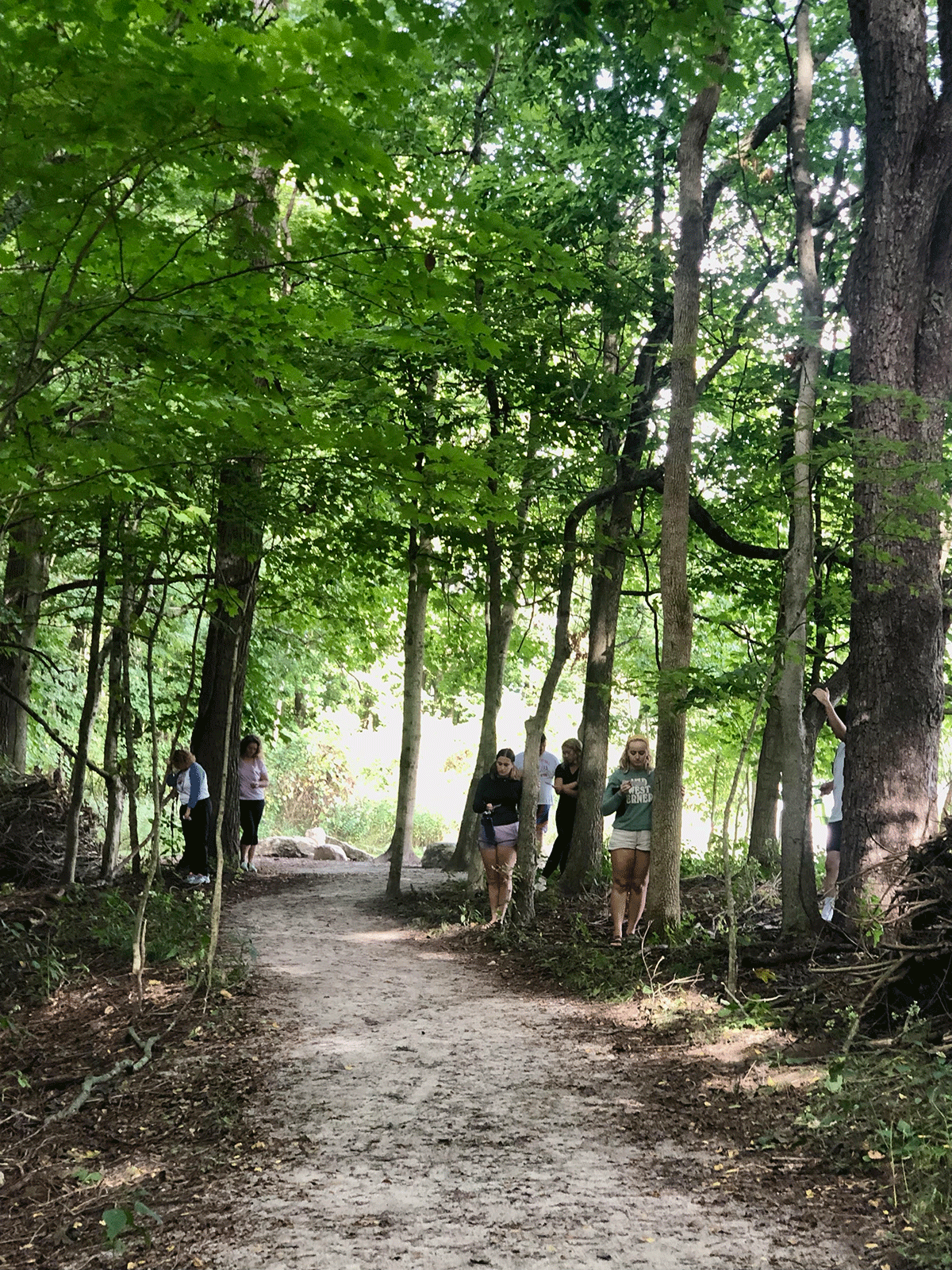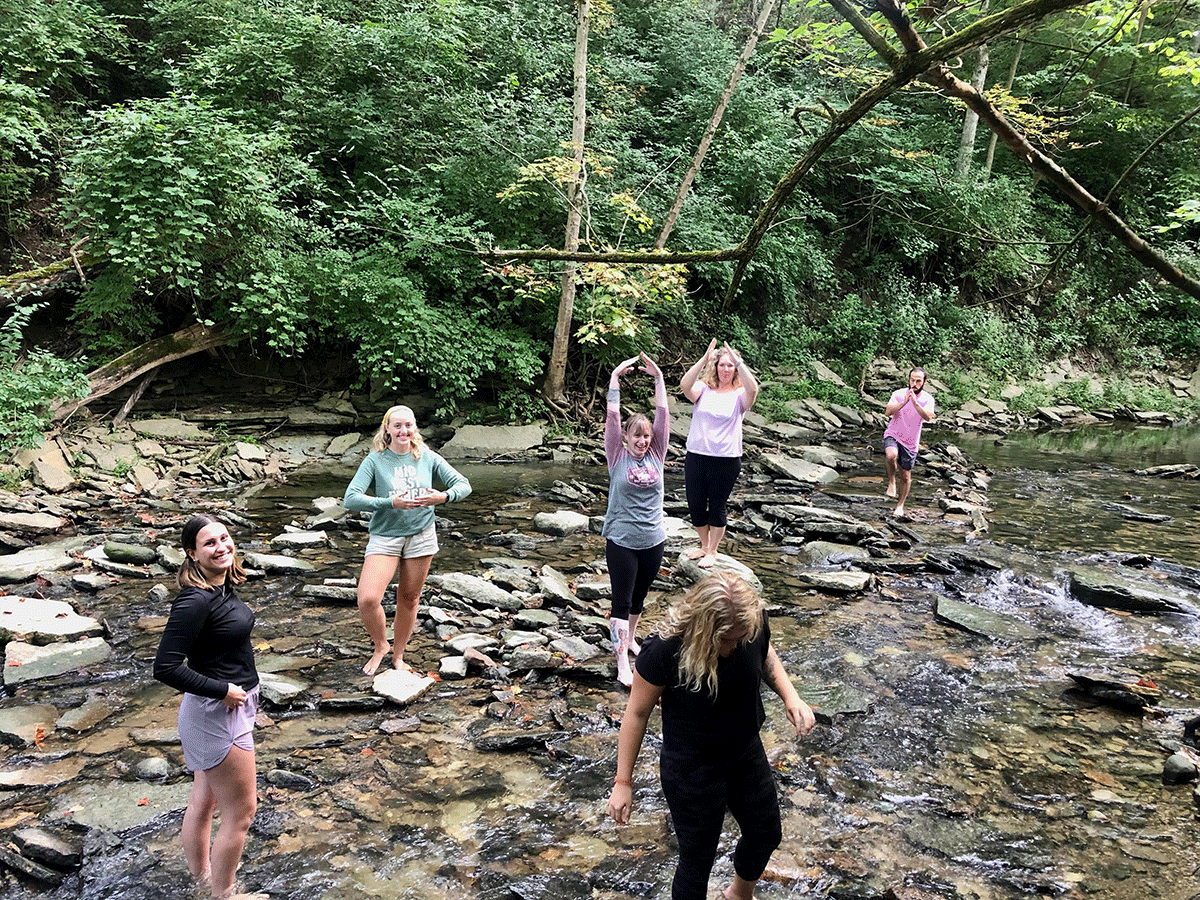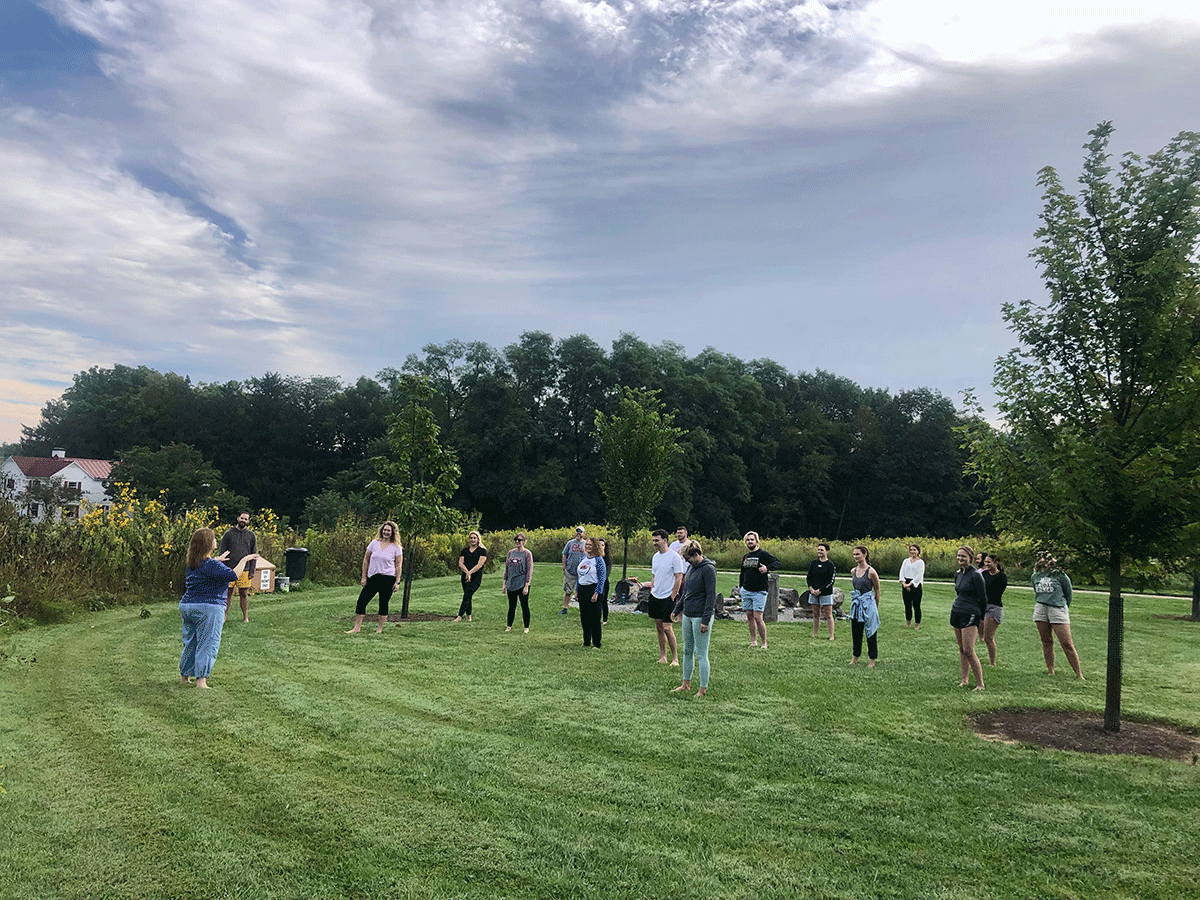Holistic healing in nature
Earlier this month, about 20 UD students strapped on their hiking boots and hit the trails in Centerville, Ohio. They hiked paths and participated in yoga and qigong — a Chinese system of coordinated body postures, breathing and meditation — as part of a new ecotherapy certificate, which started this semester in the department of counselor education and human services.

Ecotherapy, according to the National Institute of Health, is “the ability of interaction with nature to enhance healing and growth.” Professor Scott Hall, coordinator of the clinical mental health counseling program at the University of Dayton, led the outdoor seminar.
“[Ecotherapy] is about incorporating nature to challenge people in ways that promote their well-being,” Hall said. “We have the students look at areas where they are doing well and at what they still need to evaluate in their own lives.”
The ecotherapy certificate program focuses on five dimensions of wellness: physical, emotional, mental, spiritual and relational. It consists of 10 credits of coursework, including seminars, outdoor instructions and a trip to the Blue Ridge Mountains in North Carolina, which includes a trek up Grandfather Mountain.
The excursion in Centerville focused on holistic wellness, where students used nature to promote their own physical and mental wellness — a real-world application of ecotherapy, Hall said.
Kaylea Sluss, a graduate student in clinical mental health counseling, said she left the seminar with a better understanding of how she will help her own clients.
“We ask our clients to do so much, such as challenging them to go outside their comfort zones. But how often do we challenge ourselves to do the same thing?” she asked. A benefit of the session was “to not only think about someone else's perspective — and to think about their struggles — but to actually put ourselves out there and experience that struggle and vulnerability.”
Hall said that viewpoint is exactly what he wants the students to take away from the program.
“We want the students to learn to have a macro and micro view of things,” he said. “Because if you’re just looking at a client’s problem on a macro level, you may miss some of the nuances that can only be found on a micro level.”
Although the program emphasizes the importance of nature and one’s surroundings, Sluss said that for her, ecotherapy means more than just being out in nature.
“Ecotherapy is bringing ourselves back into the moment.”
“Ecotherapy is bringing ourselves back into the moment, into this physical, mental and spiritual world, and allowing ourselves to be healed by that experience,” she said.
Hall said nature plays an important role in bringing us back into the moment: “Nature helps us to realize that there are things in this world that are greater than ourselves.”

